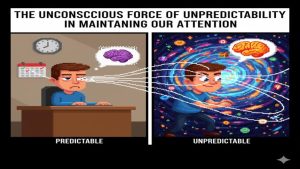On November 30, 2013, the world was stunned by the tragic death of actor Paul Walker, best known for his role as Brian O’Conner in the “Fast & Furious” franchise. Walker’s untimely demise in a car crash not only marked the loss of a beloved Hollywood star but also sparked a renewed focus on road safety. His death served as a poignant reminder of the dangers associated with reckless driving and high-speed road behavior, influencing both public perception and policy regarding road safety.
The Circumstances of the Accident
Paul Walker died in a horrific car accident in Santa Clarita, California, while attending a charity event for his organization, Reach Out Worldwide. He was a passenger in a Porsche Carrera GT driven by his friend and business partner, Roger Rodas. The car crashed into a concrete lamppost and two trees before bursting into flames. Investigations revealed that the car was traveling at a dangerously high speed, estimated between 80 and 93 mph, in a 45 mph speed zone.
The Immediate Public Reaction
The news of Walker’s death sent shockwaves around the world. Fans, colleagues, and friends mourned his loss, and social media platforms were flooded with tributes. However, amidst the grief, there was also a growing discourse about the factors contributing to the accident. Many questioned the safety of high-performance vehicles like the Porsche Carrera GT and the responsibilities of drivers when handling such powerful cars. This conversation prompted a broader examination of car safety standards and the ethical implications of portraying high-speed chases in popular media.
Raising Awareness
Media coverage played a significant role in highlighting road safety issues following Walker’s death. News outlets extensively reported on the accident details, emphasizing the importance of adhering to speed limits and the potential hazards of high-speed driving. The tragic irony of Walker’s death—considering his fame from a film series glorifying fast cars—further fueled the conversation about the distinction between on-screen entertainment and real-life consequences.
Several celebrities and organizations took this opportunity to advocate for road safety. Vin Diesel, Walker’s close friend and co-star, used his platform to honor Walker’s memory by promoting safe driving. The “Fast & Furious” franchise also dedicated the seventh installment, “Furious 7,” to Walker, incorporating themes of family, responsibility, and the stark realities of dangerous driving.
Impact on Policy and Safety Initiatives
Paul Walker’s death had a ripple effect on road safety policies and initiatives. Authorities revisited the regulations surrounding high-performance vehicles and driver education programs. In Los Angeles, where the accident occurred, there was a noticeable increase in traffic law enforcement, particularly targeting speeding and reckless driving.
Various non-profit organizations and safety advocacy groups also stepped up their efforts to educate the public about road safety. Campaigns focused on the dangers of speeding, the importance of wearing seatbelts, and the risks associated with driving under the influence. The National Highway Traffic Safety Administration (NHTSA) and other agencies leveraged Walker’s tragic story to underline their messages, making road safety a more personal and relatable issue for many.
The Legacy of Paul Walker
Beyond the immediate aftermath, Paul Walker’s legacy continues to influence road safety awareness. Reach Out Worldwide, the charity he founded, expanded its scope to include road safety programs, educating young drivers about the risks of reckless driving. His daughter, Meadow Walker, also established the Paul Walker Foundation, focusing on marine science but also supporting initiatives related to road safety and driver education.
In the years following Walker’s death, the “Fast & Furious” franchise itself took a more responsible stance toward depicting car stunts and high-speed chases. While still maintaining its entertainment value, the series began to include disclaimers and behind-the-scenes footage that emphasized the controlled environments in which the stunts were performed, discouraging viewers from attempting similar actions on public roads.
Paul Walker’s death was a heartbreaking loss that resonated deeply with fans worldwide. However, it also served as a crucial turning point in raising awareness about road safety. Through media coverage, celebrity advocacy, and policy changes, Walker’s tragic accident highlighted the dangers of reckless driving and the importance of adhering to road safety measures. His legacy continues to save lives by reminding us all of the real-life consequences of high-speed driving and the need for responsible behavior behind the wheel.
Additionally, his story has underscored the importance of seeking justice for victims of car accidents, a mission passionately pursued by Venice car accident attorneys who work tirelessly to support and advocate for those affected by such tragic events.






